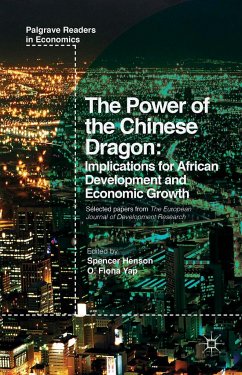
Towards a New Political Economy of Development
States and Regions in the Post-Neoliberal World

PAYBACK Punkte
19 °P sammeln!
The author examines new development strategies in the context of globalisation and the crisis of the Washington Consensus. Critiquing both protectionism and the free market he points to the influence and evolution of Keynesian ideas for the management and stabilisation of development in an era marked by the unravelling of neoliberal prosperity.














